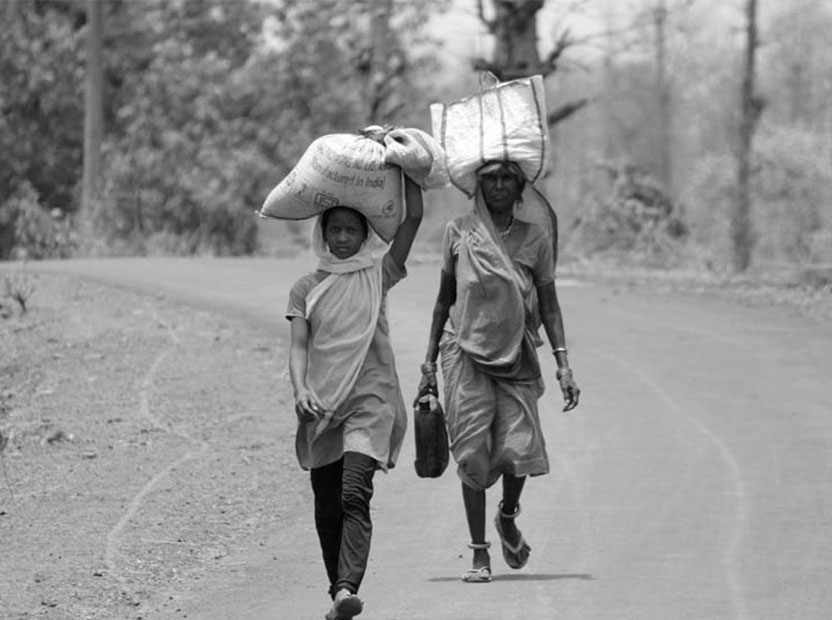
In our battle against the deadly COVID-19, C3 has been standing up for the poor, the marginalized, the vulnerable members of our society and for health workers, frontline workers, field officials, service providers who are putting their lives at risk, every day. But the fight isn’t over. Coronavirus has led to a nationwide lockdown, creating fear and havoc among our lives, but many have been affected more adversely than others. This is an appeal to join hands in our battle against #Covid19, to help us keep providing support to those who need it the most. The road to recovery is long, and your valuable contribution will help immensely.
Since the beginning of the lockdown, we are consistently working towards providing essential food rations (rice, flour, oil, etc.) and basic hygiene supplies (masks, sanitizers, soap, etc.). Our efforts have reached:
- 500 families of homeless street-dwellers in Delhi-NCR.
- 150 tribal families from the remotest areas of Chhattisgarh.
- Families of the Korkul Tribe in Madhya Pradesh’s Khandwa district.
- Poor and marginalized families in Faizabad, Uttar Pradesh, left out of government aid due to lack of documentation.
- 300 families from remote villages in Karnataka.
- 150 families in Patna who are extremely poor, widows with no means of income, old women and people with disabilities.
- 100 malnourished children and 100 adolescent girls of East Champaran District, Bihar.
Income opportunities are low and fear looms over all.
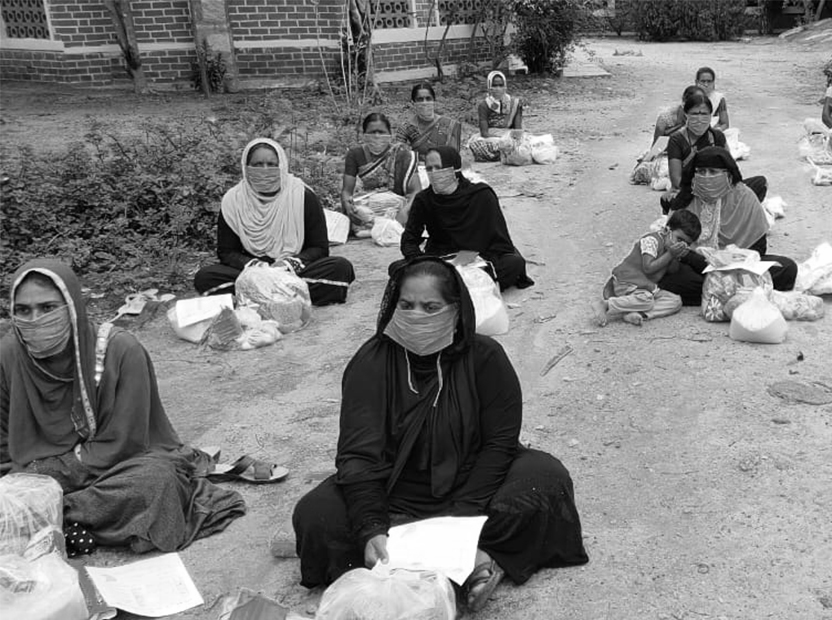
This health crisis has brought with it immense economic burden and financial instability, to tackle that, we at C3 are working to build the capacities of women in various rural and economically challenged communities.
- Supporting street-welling women in Delhi-NCR for mask-making
- Provided equipment and support for mask making to women Self-Help Groups (SHG) in Odisha
- Supporting mask making among women from lower economic status in Karnataka
- Co-creating a Livelihood Platform for the women of Delhi’s GB road, home to over 2000 sex workers, where the first phase involves mask-making.
- In Assam, we are working towards ensuring that families are endowed with a homestead land for a ‘kitchen garden’ to grow their own food, as well as earn some income.
Making communities self-sufficient during the pandemic.
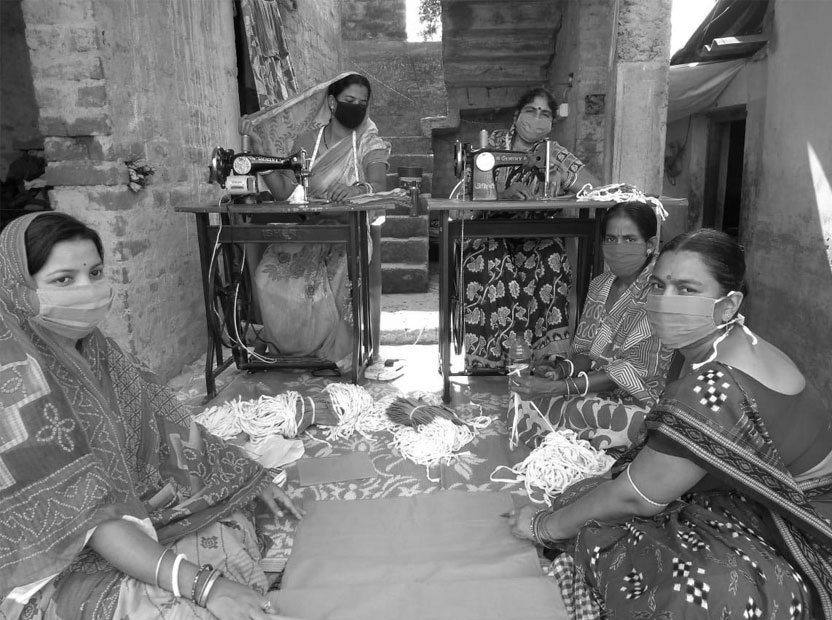
Evidence suggests that every time there is a natural calamity or a pandemic, the section of society that suffers one of the largest loss is – adolescent girls.
- Supporting 1000 families in Gumla, Jharkhand, for 3 months – providing immediate relief and supporting girls and women to combat Gender Based Violence. Going door-to-door, we raised awareness on preventive and legal measures around violence. Further, we developed audio/video messages to circulate among communities and families of adolescents.
- Partnered with the Government of Jharkhand to supply allocated sanitary pads to girls and women.
- Provided free sanitary products among peer educators at our project sites in Lohardagga, Jharkhand.
Preparing for the post-pandemic consequences.
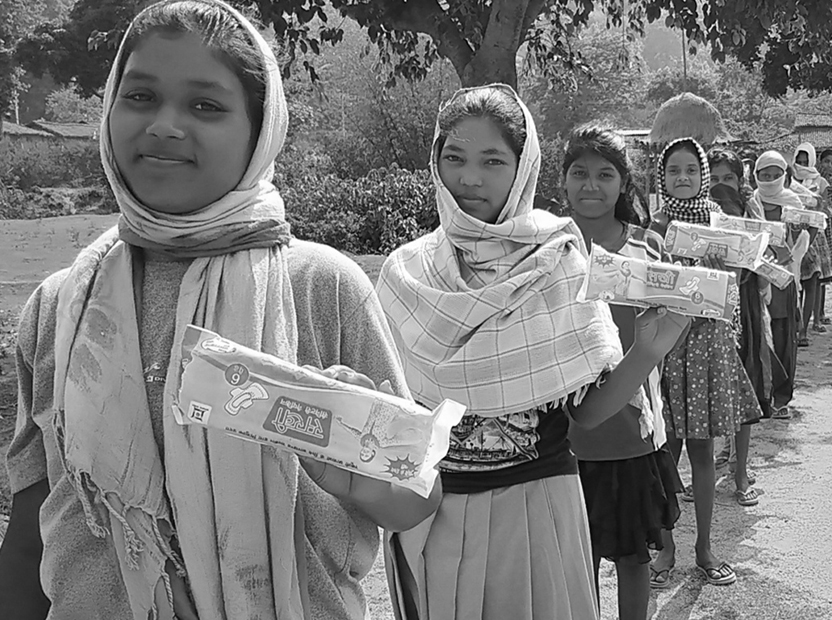
- With the support from Amazon Cares, we organized a mask and sanitizer drive (basic hygiene kit) to select police station administrative offices in Kolkata.
- In Bilaspur, Chhattisgarh, we are providing protective face masks, sanitizers and gloves to aid the daily work of frontline workers, ASHAs, and Chief Medical Health Officers.
- We are distributing basic hygiene kits (face masks and sanitizers) to ANMs and Sahayias in Jharkhand.
To our brave first responders and frontline workers.
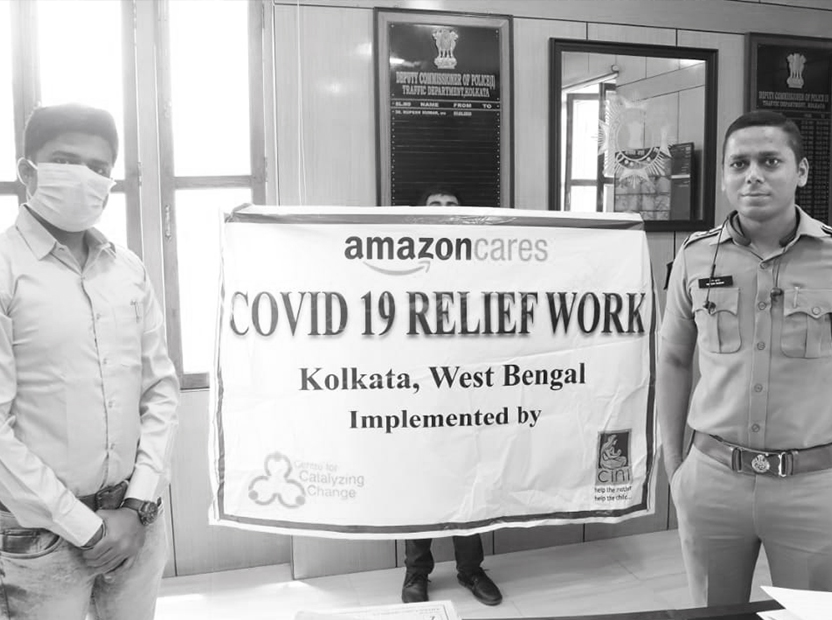
In Bihar, the COVID-19 crisis is immense – with the return of migrants increasing the pressure on an already burdened state administration. Therefore, C3 conducted an assessment to gather information on the impact of COVID-19 and the subsequent lockdown on incomes and coping mechanisms in communities, the reach of relief work and entitlements announced by governments, the status of health and essential service delivery and the knowledge levels of leaders and elected members. This would help us create intervention strategies to support communities to cope better with the pandemic.
Supporting the most affected communities.
